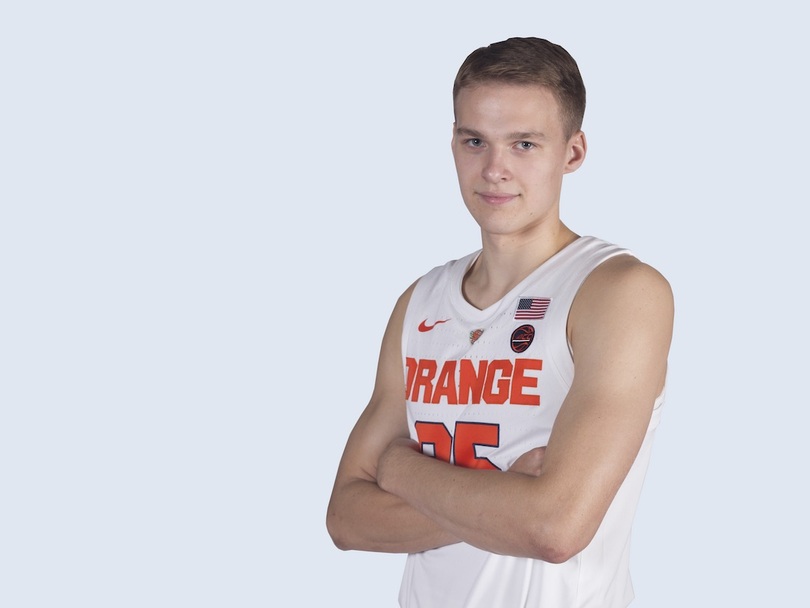After some bad games, Buddy walked out to the car and cried or threw things. He didn’t think then that he’d ever contribute at his dream school. Maybe he’d be a walk-on, or come to Syracuse because he always wanted to. Not because he deserved it.
As Buddy’s self-doubt manifested, his father propped him up.
“He would see my crying after games, and he’d tell me I’m gonna be the best player in the area someday,” Buddy said. “And that just stuck out, always reminded me every now and then that he always believed in me.”
Eventually, Boeheim helped his son surpass the burden. He attended Buddy’s games at Jamesville-DeWitt (New York) High School when he could and provided “nuggets of advice” afterward. Other nights, J-D’s head coach Jeff Ike visited SU to receive Boeheim’s advice on the zone and install quick-hitter offensive sets.
Once Buddy grew out of the pressure, he proved he was a top-level recruit. But Buddy went into the summer after his junior year without an SU offer. Then, Boeheim’s assistants came to his office and implored him to grant Buddy a spot, Juli said. After only a bit of discussion at home, Boeheim agreed. Buddy had earned it.
“I wouldn’t have pushed through that (without him),” Buddy said. “Just keeping me motivated at all times, even if I was struggling.”
Buddy watched the 2003 national championship game from his house as Gerry McNamara hit six first-half 3s. Six years later, he sweated and cried in Madison Square Garden as Eric Devendorf and Syracuse beat UConn in six overtimes in the Big East tournament.
Over time, the legends of Syracuse basketball folklore became Buddy’s personal coaches. Beginning in seventh grade, Buddy worked out with Devendorf when he returned for summers while playing overseas.
Devendorf didn’t touch Buddy’s jump shot — it was already “unbelievable,” he said. McNamara compared it to NBA All-Star Klay Thompson’s. So, Devendorf and Buddy worked on other aspects of his game.
“Trying to give him little secrets here and there,” Devendorf said. “Putting the ball on the ground and just having confidence in himself.”
The two guards played each other one-on-one. Buddy never won, he said. But the passion and intensity Devendorf trained with rubbed off on Buddy. And that relationship helped Buddy as pressure mounted.
When it wasn’t easy to talk to the source of the pressure, Buddy had another outlet. Devendorf had played in front of packed collegiate arenas around the country. He knew what it was like to have people counting on you, even if he couldn’t relate exactly to what Buddy dealt with.
“When your dad is a Hall of Fame coach, expectations can be pretty high,” Devendorf said. “People can put a lot of nonsense out there. You have a bad game, you have a good game, they’re always gonna have something to say.”
Devendorf took a position as special assistant to the head coach at University of Detroit Mercy after working on SU’s strength staff.
But McNamara remains one of Boeheim’s assistants, and he’s worked with Buddy to expand beyond his jump shot. He puts it on the floor better now, McNamara said, and has started to make second-level reads off of drives.
When McNamara arrived at Syracuse in 2002, he saw Buddy in diapers. Sixteen years later, SU’s all-time leader in 3-pointers made is afraid to challenge that same kid to a shooting contest.







